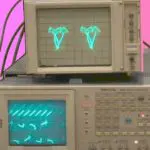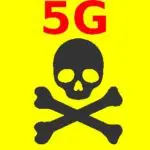The PXI Vector Signal Transceiver (VTS) Radar Target Generation (RTG) system unlocks closed-loop, low-latency, real-time radar test capabilities. The new PXI VST allows engineers to identify and isolate issues before costly open-air range tests, increasing user confidence in radar system performance with accurately calibrated radio frequency (RF) test capability.
Today, radar test engineers must test realistic scenarios to fully evaluate system-level performance. However, modern radar and their  operating environments make adequate test coverage through simulation a complex challenge. Additionally, the application-specific nature of radar systems means test requirements can vary widely from system to system. To meet these nuanced challenges, NI developed the VTS RTG system, which injects independent targets into radar systems during productions tests. This allows users to validate the system performance and provide a final functional check before open deployment. Built on standard, off-the-shelf RF test hardware, the VTS RTG system is an efficient single instrument tool for multiple test requirements.
operating environments make adequate test coverage through simulation a complex challenge. Additionally, the application-specific nature of radar systems means test requirements can vary widely from system to system. To meet these nuanced challenges, NI developed the VTS RTG system, which injects independent targets into radar systems during productions tests. This allows users to validate the system performance and provide a final functional check before open deployment. Built on standard, off-the-shelf RF test hardware, the VTS RTG system is an efficient single instrument tool for multiple test requirements.
“In recent years, radar technology has been critical for flight safety, precision navigation, space applications, and more,” says Luke Schreier, NI’s Senior Vice President and General Manager of Aerospace, Defense, and Government Business .”Modern radars are designed to adapt to electronic warfare and the ever-changing electromagnetic spectrum in dynamic ways. Due to the increased complexity of designs, finding issues before an open-air range test has never been more important.”
The NI Radar Target Generation Driver is an alternative Field-Programmable Gate Array (FPGA) configuration for specific PXIe Vector Signal Transceiver models. The VST configuration is a closed source and license-restricted FPGA build that allows the transceiver to operate as a closed-loop, real-time radar target generator or channel emulator. As a fully validated FPGA configuration, users can confidently add up to four independent targets to their radar or provide four multi-path delay channels for data link systems tests. Since the VST is a calibrated RF receiver and transmitter, its highly accurate response improves the reliability of test scenarios along with user’s confidence in test results.
National Instruments Corp., 11500 North Mopac Austin, TX 78759, 1-888-280-7645, Fax: 512-683-8411, www.ni.com/en-us/solutions/aerospace-defense/radar-electronic-warfare-sigint/validate-radar-systems.html






Leave a Reply
You must be logged in to post a comment.